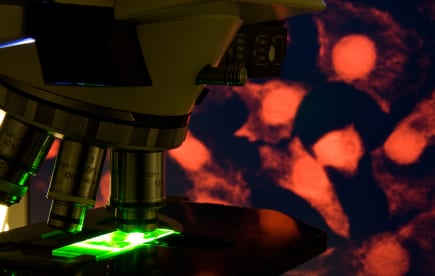
Much to the surprise of many scientists, a lot of the SNPs identified in genome wide association studies have not been in the parts of genes that encode the molecular machinery of a cell.
Instead, many SNPs have been found on the edges of genes, in regions of DNA that control when the genes get turned on or off, in parts of genes that get cut out before the final proteins are made, or even in so-called “gene deserts,” areas of DNA that don’t seem to contain any genes at all.
Rs6983267 is one of these gene desert SNPs. People with two copies of the G version of this SNP have about 1.4 times the odds of developing colorectal cancer compared to people who have two Ts, but so far no one has been able to figure out why. Two new reports show that, even though this SNP seems to be out in the middle of nowhere in the genome, it can interact with components of a signaling pathway known to be overactive in more than 90% of all colorectal cancers.
Results from Tuupanen et al. and Pomerantz et al., both published online this week in the journal Nature Genetics, show that the region of DNA containing rs6983267 is an “enhancer” that can turn up the amount of protein made from the MYC gene. The riskier G version of the SNP appears to make the enhancer stronger than the T version.
In colorectal cancer, increased MYC expression can often be traced to overactivity of a molecular signaling pathway known as Wnt. Both groups of researchers found that the region of DNA containing rs6983267 was responsive to Wnt signaling, thus connecting this SNP to a well-established cancer mechanism.
Drugs that attack the Wnt pathway are attractive candidates for cancer therapies. According to Tuupanen et al., the new results suggest that these same types of drugs might be useful for personalized cancer prevention treatments in people who carry the riskier version of rs6983267.



